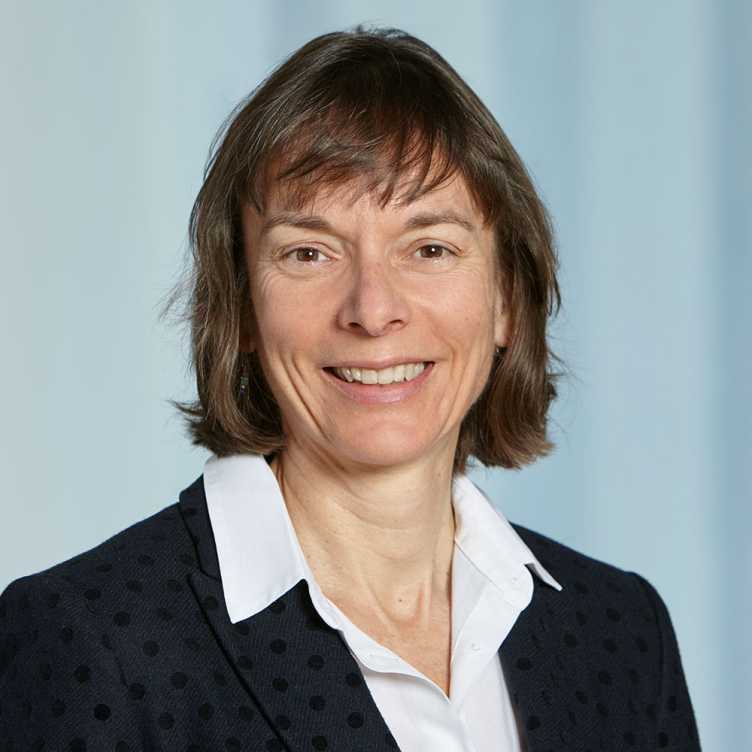A biologist, a neuroscientist, a materials scientist and a physicist have each been awarded one of the prestigious grants of the Swiss National Science Foundation.

Four professors at ETH Zurich have each been awarded an Advanced Grant from the Swiss National Science Foundation (SNSF). Over the next five years, they will receive between 1.9 and 2.7 million Swiss francs – a total of 8.5 million Swiss francs will go to ETH Zurich.
The SNSF Advanced Grants are a transitional measure by the federal government. They were created when researchers at Swiss universities became ineligible to apply for Advanced Grants from the European Research Council (ERC) following Switzerland’s treatment as a non-associated third country. The grants are awarded to established researchers with an outstanding academic track record.
This round of the annual Advanced Grants was the last to be awarded by the SNSF. In the next round, established researchers can again apply for an Advanced Grant from the ERC.
These researchers will receive an SNSF Advanced Grant:

Plants, like animals and fungi, have a genome in which there are normally two copies of almost all chromosomes (except the sex chromosomes). In a special type of cell division called meiosis, this double set of chromosomes is halved and evenly distributed among the gametes, which is essential for fertility. However, there are also polyploid organisms, including many of our crops, which have more than two copies of chromosomes. In her Advanced Grant project, Kirsten Bomblies, Professor in the Department of Biology, and her team want to find out why newly formed polyploids have problems during meiosis (and therefore with fertility) and how adaptations in evolved polyploids solve these problems. The results will help to develop ways to increase the low fertility of new polyploids, allowing plant breeders to capitalize on their high stress tolerance.

Jonathan Home is a professor in the Department of Physics. He researches how charged atoms (ions) can be precisely confined and used to store information. Recently, he demonstrated that ions in a novel micro-scale trap, which utilizes a combination of static electric and magnetic fields, can be manipulated with high precision. Information can be stored in the quantum mechanical oscillation of such ions. However, these traps are susceptible to external disturbances, such as vibrations or fluctuations in the electric fields which trap the ions. In his Advanced Grant project, Home aims to develop a robust method for storing information, which will enable to detect and correct errors caused by the interaction of the ions with external factors. He will also study what happens when several such stabilised systems interact with each other. This is a step towards the practical application of the technology – the development of reliable quantum computers.

Nicola Spaldin is the Professor of Materials Theory in the Department of Materials. In her research, she investigates the physical principles underlying new materials with exotic electronic and magnetic properties that are of fundamental interest and might lead to technological applications. In her Advanced Grant project, she is exploring chiral materials, which are materials whose atomic structure has no mirror symmetry. Chirality plays an important role in many areas, from biology and pharmacy through the physics of fundamental particles to technologies such as displays or sensors. Although it has been known for a long time how to classify something as chiral or non-chiral, quantitative micro- and macroscopic measurements of chirality are lacking, and there is no formula to determine whether one material is more or less chiral than another. Spaldin’s project aims to close these gaps, by developing a quantitative theory of static and dynamic crystal chirality, including computer codes for calculating chiral properties, and by identifying new chiral materials. While the focus of the project is on the chirality of crystals, the results will also be relevant for spin chirality and chiral topologies and are expected to have broad influence.

Mehmet Fatih Yanik is a professor of neurotechnology. He is developing an approach to precisely modify neural networks in the brain. The aim is to use this approach to treat psychiatric and neurological disorders that are resistant to existing treatments. His concept uses biocompatible electrodes implanted in the brain to precisely measure and influence brain activity. Simultaneously, another novel technology is used to release drugs with pinpoint accuracy in the affected brain regions to trigger rewiring of brain networks. In his Advanced Grant project, Yanik will investigate neurological processes that extend across multiple areas of the brain. He wants to be able to distinguish between pathological and normal processes and to modify the pathological processes without affecting healthy brain functions with utmost precision.
Comments
No comments yet